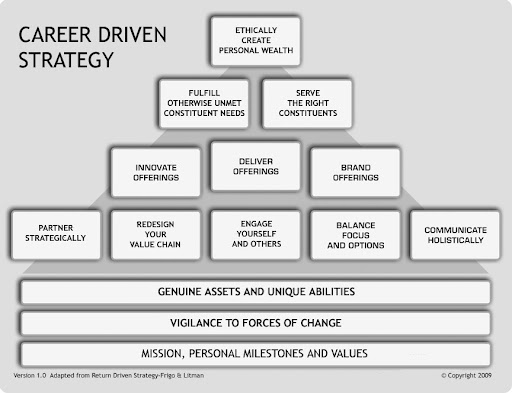This company used to be the darling of the fitness space. Now, it’s a shell of its former self…
|
|
| Today, we’re going to take a deep dive at a company that was once hailed as a darling for revolutionizing home fitness. Continue reading to see how forces of change can alter a company’s outlook. This company used to be the darling of the fitness space. Now, it’s a shell of its former self… Peloton Interactive became synonymous with home fitness during the COVID-19 pandemic. When lockdowns shuttered gyms across the globe, gym goers were confined to their homes. In response to this reality, many transformed parts of their living spaces into makeshift home gyms filled with equipment tailored to their fitness needs. … and since these people needed equipment, this led to an at-home exercise boom during the pandemic. Peloton Interactive was one of the companies that were well-positioned during this boom, as it wasn’t just a run-of-the-mill fitness equipment manufacturer.
What set Peloton Interactive apart was the customer experience it provided. The company sold exercise equipment like stationary bikes and treadmills, which were connected to its online interactive platform. This essentially enabled users to engage in live or on-demand fitness classes and track fitness-related metrics. In a nutshell, Peloton Interactive generated revenues through the sale of exercise equipment worth more than USD 1,000 and a monthly subscription fee for access to its proprietary fitness platform. At a time where access to gyms and the camaraderie these places provided were sorely missed, the company stood out because its platform provided a sense of community fitness enthusiasts sorely needed. In fact, during its peak, the company’s stock traded for as high as over USD 160 per share. However, nearly five years since this peak, Peloton Interactive’s stock is only worth over USD 6 per share. What happened? Peloton Interactive operated on the assumption that the at-home fitness boom would keep going, and that consumers would continue to do their workouts within the confines of their homes. In reality, this was a miscalculation. As soon as lockdown restrictions were lifted and the rest of the world gradually reopened, many found themselves returning to their pre-pandemic fitness routines, which involved spending time in gyms. This led to demand for Peloton Interactive’s products and subscriptions to plummet. Aside from this, the company was hounded by product recalls in 2021 for its treadmill offerings, and in 2023 for its model PL01 exercise bicycles. The Importance of Being Vigilant to Forces of Change Peloton Interactive has averted total collapse through a combination of price adjustments, a rebrand, layoffs, leadership changes, and outsourcing the manufacture of its products. Despite these strategic moves, the company has yet to return to the heights it reached during the pandemic. As of July 2025, Peloton Interactive’s market cap stands at USD 2.5 billion—a far cry from its peak of USD 46.7 billion in 2021. Vigilance to forces of change —RDS’ 2nd foundation shows us the reason behind Peloton Interactive’s precipitous decline. According to Professor Joel Litman and Dr. Mark L. Frigo in the book, “Driven” : “Forces of Change can rock the business from all directions. Some forces of change are slow and predictable; some are sudden and unexpected. Others appear to be random. The fact is that Forces of Change drive the risks and opportunities of all businesses. How well management understands and manages these risks and opportunities will determine the firm’s success or failure. In the case of Peloton Interactive, shrinking demand proved to be its undoing. The company reached its peak at a time where consumer behavior was favorable to its offerings. Once that changed, Peloton Interactive’s business model—which was reliant on consumers staying at home, instead of working out at gyms—unraveled. The bottom line? Companies should always keep an eye on potential shifts from all directions. As we’ve seen from Peloton Interactive’s story, forces of change can make or break a company. — If you’re looking to gain a better understanding of Return Driven Strategy and Career Driven Strategy, we highly recommend checking out “Driven” by Professor Litman and Dr. Frigo. Click here to get your copy and learn how this framework can help you in your business strategies and ultimately, in ethically maximizing wealth for your firm. Hope you found this week’s insights interesting and helpful. EXCITING NEWS AHEAD The world of work has shifted, and there’s no going back. The barriers to entry have never been lower for talented professionals to work independently, and today’s massive external workforce is hardly a pandemic-produced fad. Business owners can only survive in the new work landscape by partnering with this deep talent pool. With decades of experience in both small-business entrepreneurship and executive management at PwC, I truly believe that the future of work is independent. With that, I’m happy to share with you that my book, co-authored with Walter Scott Lamb, is now available on Amazon! Free Birds Revolution: The Future of Work & The Independent Mind This new bestseller is an essential read for both independent professionals and corporate executives. Here, we provide educational and practical guides to unpack the ever-growing workforce and offer you crucial ways to become a client of choice. Click on the link above to order your copy. Let this bestselling book help you future-proof your career and organization in the new world of work. Stay tuned for next Tuesday’s Return Driven Strategy! In today’s dynamic business landscape where every decision counts, leaders and management must navigate through a maze of metrics and frameworks to unlock sustainable growth and value creation. Learn more about the third foundation of the Return Driven Strategy framework in next week’s article! |

Miles Everson
CEO of MBO Partners and former Global Advisory and Consulting CEO at PwC, Everson has worked with many of the world's largest and most prominent organizations, specializing in executive management. He helps companies balance growth, reduce risk, maximize return, and excel in strategic business priorities.
He is a sought-after public speaker and contributor and has been a case study for success from Harvard Business School.
Everson is a Certified Public Accountant, a member of the American Institute of Certified Public Accountants and Minnesota Society of Certified Public Accountants. He graduated from St. Cloud State University with a B.S. in Accounting.



